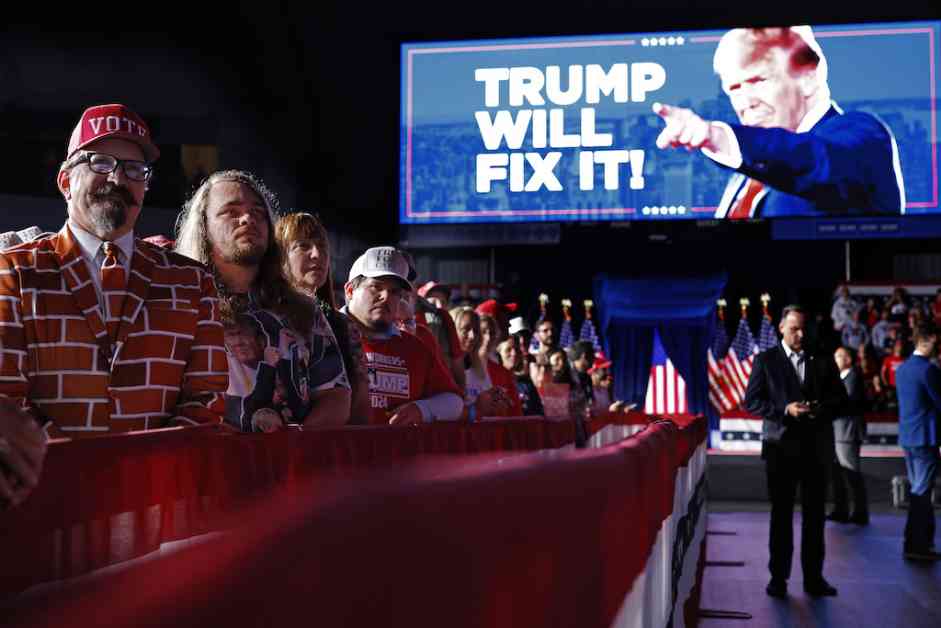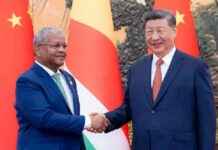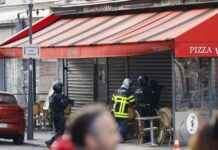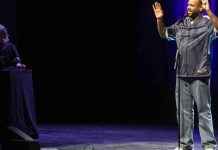In a small liberal college town of 7,000, two seemingly typical Democrats, J and Q, found themselves in an unexpected situation. J, a business professor, and Q, a historian, were both divorced single parents who had been dating for six months. Their differences in political views were stark—Q was a self-proclaimed leftist with a scholarly focus on “gendered violence” during socialist revolutions in China, while J was more moderate. Despite their contrasting ideologies, they decided to attend a Donald Trump rally days before the 2024 election.
The couple embarked on a journey to Salem, Virginia, for what they considered a unique romantic date. Their interest in public radio and a jam band led them to investigate the unusual comparison between Trump rallies and Phish concerts. Eager for a firsthand experience, they arrived at the rally early, witnessing a sea of red in the parking lot: flags, shirts, slogans, and signs. The atmosphere buzzed with anticipation and a sense of camaraderie among supporters.
As the rally unfolded, J and Q observed the stark political divide within the crowd. Supporters eagerly engaged in conversations and cheered on speakers, while a small group of counter-protesters stood on the fringes, advocating for a different vision of democracy. The contrast highlighted the liberal bubble that Lexington, their hometown, existed within.
For Q, the rally stirred memories of her family’s experiences during China’s Cultural Revolution. She reflected on her grandfather’s tragic fate at the hands of political turmoil, drawing parallels to the fervor and aggression that permeated the rally. The echoes of history and the weight of collective upheaval resonated deeply with her as she navigated the sea of red in a foreign land.
The rally served as a poignant reminder of the enduring impact of history on individual lives. Q’s personal connection to political turmoil and her immigrant status added layers of complexity to her experience at the rally. Amid the chaos and fervor, she grappled with uncertainty and fear for the future, both in terms of her own immigration status and her child’s well-being.
As the night unfolded and the election results were announced, J and Q found themselves grappling with the shifting political landscape. Their investment strategies reflected a pragmatic response to the changing tides, while personal anxieties about their future intertwined with broader political uncertainties. The rally had not only exposed them to the raw passion of Trump supporters but also catalyzed introspection about their own place in a rapidly evolving world.
In the aftermath of the rally, as sleep eluded them, J proposed to Q, suggesting they get married as a response to their shared anxieties and uncertainties. The gesture symbolized a form of resistance and solidarity in the face of a tumultuous political climate. In their union, they found a sense of strength and connection that transcended political differences and underscored the power of love as a source of resilience.
As the dust settled and the reality of Trump’s victory sank in, J and Q navigated the complexities of their personal and professional lives against the backdrop of a changing world. The rally had left an indelible mark on their relationship, prompting them to confront their fears and uncertainties with a newfound sense of unity and purpose. In the end, they discovered that amidst the chaos and division, love could be a powerful force for resilience and resistance.









![Indie music fans gather at l’Antipode for [Face B] Kool Things soirée on Saturday night news-15112024-105933](https://shanghainewstv.com/wp-content/uploads/2024/11/news-15112024-105933-218x150.jpg)







